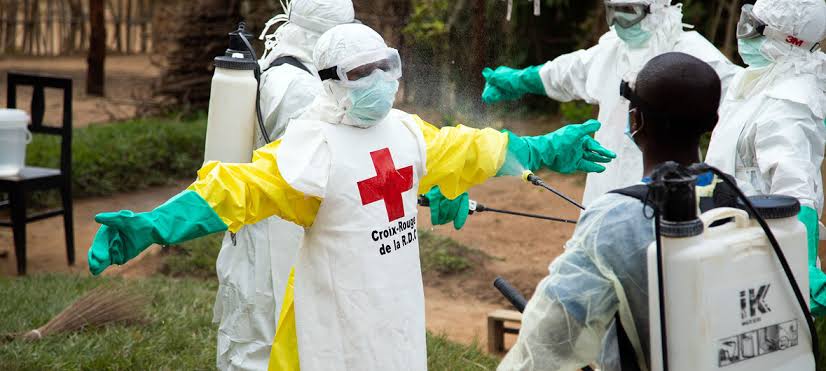Congo Declares End Of World’s Second-Largest Ebola Outbreak

Congo’s Ministry of Health has declared the end of the world’s second-largest Ebola outbreak in Northeast of the country on Thursday as no new cases were recorded after two full incubation periods of the deadly virus passed.
The outbreak began in August 2018 killing at least 2,280 people, around two-thirds of those infected.
It would be recalled that weeks before declaring the end of the epidemic in East of Congo, another outbreak was detected in the Northwest on June 1, resulting in 15 deaths.
Read Also: New Ebola Outbreak Detected In Northwest Democratic Republic Of The Congo
Congo health minister, Eteni Longondo announcing the new feat noted that this has been the longest and most complex Ebola epidemic in the history of the country.
The end of the #Ebola outbreak in Northeastern #DRC🇨🇩 is officially announced by DRC Health Minister @LongondoEteni! 🥳Congratulations to the DRC govt, @MinSanteRDC & the people of DRC for this victory over one of the longest & deadliest Ebola outbreaks in history. pic.twitter.com/BfZbHmXnQ9
— WHO African Region (@WHOAFRO) June 25, 2020
The 23-month long battle against the outbreak saw the impact of 16,000 front-line workers, technological innovation and a new vaccine.
Efforts to curb the spread of the disease, which affected 3,463 people, primarily in eastern Congo’s North Kivu province, and to a lesser extent in neighboring Ituri, was hampered by various issues.
Some of these issues include feud between government officials, mistrust in aid organizations, the emergence of new hot spots, and the competing outbreaks of measles and the novel coronavirus, all affecting the response to the Ebola virus.
Despite the hurdles, a well-financed global response was able to make use of several experimental vaccines and treatments, which were credited with helping slow the virus’s spread while a cure remains elusive.
More than 300,000 people were vaccinated with Ervebo, a vaccine made by the American pharmaceutical giant Merck, which became the world’s first fully licensed Ebola vaccine late last year.
A second vaccine, made by another American company, Johnson & Johnson, was used as part of a clinical trial. Another clinical trial tested four experimental treatments, and two were found to improve survival.
The regional director of WHO, Dr Matshidiso Moeti said the 2018-2020 outbreak is over due to the collaboration by various arms of government and the community.
Speaking at a virtual news conference, Moeti said;
This is a sign of hope that with solidarity and science epidemics can be controlled. At times it seemed like a mission impossible. Ending this Ebola outbreak is a sign of hope for the region and the world, that with solidarity and science and courage and commitment, even the most challenging epidemics can be controlled.
Ebola is a hemorrhagic fever endemic in animal populations that reside in Africa’s tropical forests and is passed from person to person through contact with body fluids.
Congo has had 11 outbreaks since the virus was first identified in humans in 1976.
The worst outbreak of the virus swept through Guinea, Sierra Leone and Liberia between 2014 and 2016, killing more than 11,000.
Nigeria also experienced an outbreak of the virus in 2014 after its index case, Liberian-American lawyer, Patrick Sawyer, tested positive for it.
On 20 October 2014, the ministry of health announced that there were no longer any case of Ebola in Nigeria.
According to the WHO, 20 cases and 8 deaths were confirmed, including the imported index case, who died.
